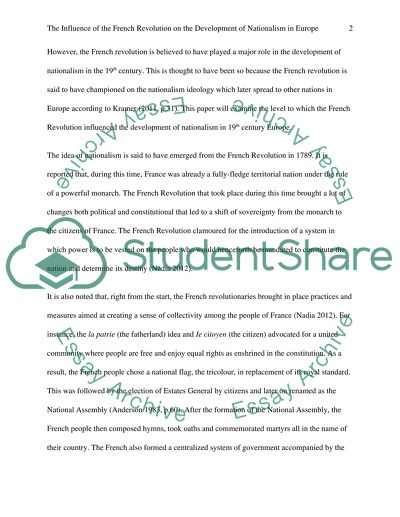Cite this document
(“How did the French Revolution influence the development of nationalism Essay”, n.d.)
Retrieved from https://studentshare.org/history/1615932-how-did-the-french-revolution-influence-the-development-of-nationalism-in-19th-century-europe
Retrieved from https://studentshare.org/history/1615932-how-did-the-french-revolution-influence-the-development-of-nationalism-in-19th-century-europe
(How Did the French Revolution Influence the Development of Nationalism Essay)
https://studentshare.org/history/1615932-how-did-the-french-revolution-influence-the-development-of-nationalism-in-19th-century-europe.
https://studentshare.org/history/1615932-how-did-the-french-revolution-influence-the-development-of-nationalism-in-19th-century-europe.
“How Did the French Revolution Influence the Development of Nationalism Essay”, n.d. https://studentshare.org/history/1615932-how-did-the-french-revolution-influence-the-development-of-nationalism-in-19th-century-europe.


